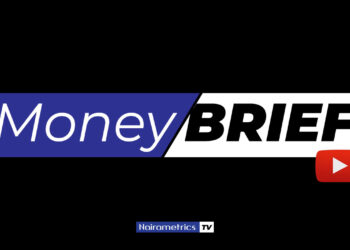There are two meat-pie shops in a city. One has two locations, while the other is a mega meat pie chain with 100 locations. Assuming they both have the same profit margin say 20% on cost of sales, which meat-pie chain will make more in terms of revenues?
Simple, the 100-location chain will have a higher sales volume and revenues because that chain can sell more pies. However, in terms of which restaurant is growing faster? Well, the answer is the smaller chain. How? The smaller restaurant is able to add say two more shops and grow by 100%, the larger chain can add 20 new location and just grow by 20%. A smaller base can grow faster than a larger base; its math.
READ: With $1 million, a delivery startup could acquire Trans-Nationwide Express Plc
This is the same for stocks. All things being equal, a company with a lower share price is able to see an appreciation in her share price faster than another company with a higher-priced stock. Look at it this way, a share price movement from N1 to N2 represents a 100% gain in market price, but a stock priced at N200 per share will need the share price to move to N400 for a similar gain of 100%.
READ: Mutual Benefits Assurance Plc to raise N4.8 billion through private placement
A small capitalized stock will have a faster growth rate than a high capitalization stock because the lower-priced share can double faster than shares of higher-priced high cap stock. This is the lure of smaller capitalized stock; they can post price increases faster than large-cap stocks.
READ: Global Stocks rise on high hopes for a COVID-19 treatment
Small capitalized stocks (small cap), according to the Nigerian Stock Exchange, are listed companies with a market cap below $150 million. Capitalization is simply the total number of shares issued by the company multiplied by the share price of the stock. As at June 2020, small capitalized stock had a cumulative market value of N971 billion ($2.51bn). Small caps as a sector also outperformed the total NSE ASI index – the small caps returned a negative -6.61% as compared with negative -18.31 returned by the broad NSE index of all listed stock.
Small caps stock is sometimes termed as growth stock because they still have tremendous opportunities for growth. In our earlier example, the meat pie company with just two outlets can grow to add hundreds of new outlets, thus boosting earning and subsequently the share price. This means when the investor is considering small-cap stock, he is looking for a high growth stock, in this case with a slightly higher P.E. ratio but trading at a price below future earnings. Small-cap investing is trading on price movement, not dividend per say, its trading not on market share but price movements, It’s a momentum play. Whilst earning is important in setting a future direction for the share process, the investors is focused on price arbitrage to take advantage of mispricing. This makes trading in small caps very risky and capital can be lost.
READ: How BTC Whales can push BTC market value to $1 trillion
How does investor trade on small cap?
Since the driver is momentum trading driven by daily prices, a key metric to screen with is price movements of 15% band from 52-week price high of small caps (N60b in market caps) with an average 90-day trading volume of 2m shares with a Price Earning ration below 15 and Earning yield above 15%
From my screen, I get these candidates:
- Berger Paints
- Fidelity Bank
- Fidson Drugs
- First City
- May and baker
- Presco
- United Capital
- Vita form
READ: 5 Nigerian companies with a combined market value of 5% of Nigeria’s GDP
Again, you can construct your own screen. What is key is to seek out a stock with a market cap below N60 billion, that is constantly trading but selling today at a price below its 52-week high. This pricing can simply be the result of COVID-19 induced slow down. Then buy that stock at a price that is “cheap” hence the lower P.E. Ratio, most importantly, you want to build in some risk management by buying high historical dividend yield stock to ensure if you have to hold, you receive a divided yield higher that the risk-free rate.
Stock trading is risky and you can lose your capital, the stocks listed above are illustrative and do not constitute buy or sell advise.






















